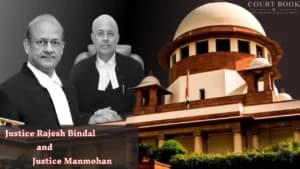The Orissa High Court, led by Chief Justice Harish Tandon and Justice K.R. Mohapatra, delivered a significant judgment in the case of State Bank of India v. Rama Krishna Behera. The court held that the disciplinary action taken by the State Bank of India (SBI) against its former employee was arbitrary and lacked fairness. It awarded ₹5 lakh as compensation instead of reinstatement, considering the workman had already reached the age of superannuation.
Rama Krishna Behera, employed as a Messenger in SBI’s Umerkote branch since 1992, was dismissed from service following a 2000 incident involving an unauthorized withdrawal of ₹20,000 from a deceased customer’s dormant account. The bank alleged that Behera facilitated this withdrawal by submitting the withdrawal slip and requesting a token on behalf of the customer.
Read Also:- Orissa High Court Dismisses IAS Officer’s Plea to Quash CBI Probe in Corruption Case
Although the withdrawn money was later recovered and re-deposited, a departmental inquiry was initiated against Behera and three other employees. While the others received only minor penalties, Behera was dismissed from service in 2003 on charges of gross misconduct.
The workman challenged this dismissal before the Central Government Industrial Tribunal, Bhubaneswar. The Tribunal, in 2017, ruled in his favor, directing reinstatement with 50% back wages.
Bank’s Stand in the Writ Petition
SBI challenged the Tribunal's award in the Orissa High Court, arguing that:
“The workman was duly issued a charge sheet, provided documents, and given a fair opportunity to participate in the inquiry. The dismissal was justified based on available evidence.”
Read Also:- Orissa High Court Upholds Divorce on Grounds of Mental Cruelty Over Wife’s Remarks on Husband’s Disability
The bank submitted that Behera initially admitted to helping the deceased’s grandson withdraw the money in good faith but later denied involvement, casting doubt on his credibility.
It also contended that there was no violation of natural justice and that the Tribunal ignored the management’s evidence and overemphasized the workman's claims.
Workman’s Defense
On the other hand, Behera claimed:
“As a messenger, he had no role in dealing with customer accounts or processing withdrawals. He was neither allowed to cross-examine witnesses nor given access to key documents during the inquiry.”
He argued that the inquiry was biased and conducted without providing him a fair chance to defend himself. Behera also presented the duty chart showing he was not authorized to handle such tasks.
Furthermore, the grandson of the deceased account holder submitted an affidavit confirming he withdrew the money and later returned it when approached by Behera and other bank staff. However, the inquiry officer refused to allow this crucial witness to testify.
Court’s Observations and Findings
The Orissa High Court made key observations:
“Merely labeling an enquiry as valid does not suffice. The process must withstand scrutiny on fairness and procedural compliance.”
Read Also:- Orissa High Court Rebukes Cuttack Municipal Commissioner Over Unauthorized Construction Near Law University
The Court found that:
- Behera was not given access to the preliminary inquiry report.
- No proper opportunity was provided to show cause before the imposition of the penalty.
- The key defense witness (the grandson) was not permitted to testify.
- Other involved officials received minor penalties, while Behera alone faced dismissal.
- The duty chart confirmed Behera’s role did not involve handling withdrawals.
The Court stated:
“The materials on record were insufficient to hold the workman guilty. The punishment imposed was grossly disproportionate.”
Since Behera had already retired in 2022, reinstatement was not possible. Considering his last drawn salary was ₹5,792 and the prolonged litigation, the Court modified the Tribunal’s order and ruled:
“The Management shall pay a lump sum of ₹5,00,000 to the workman in lieu of reinstatement and 50% back wages, within two months.”
The writ petition was disposed of without any order on costs.
Case Title: State Bank of India v. Rama Krishna Behera & Another (W.P.(C) No. 22135 of 2017)















